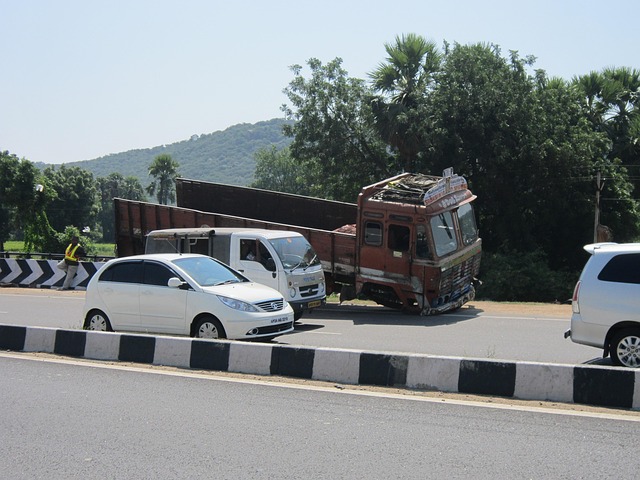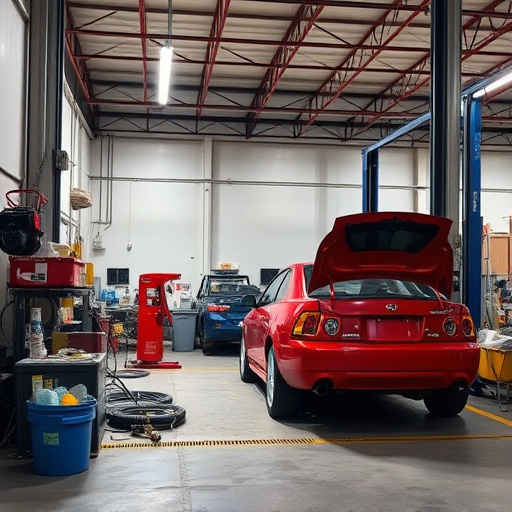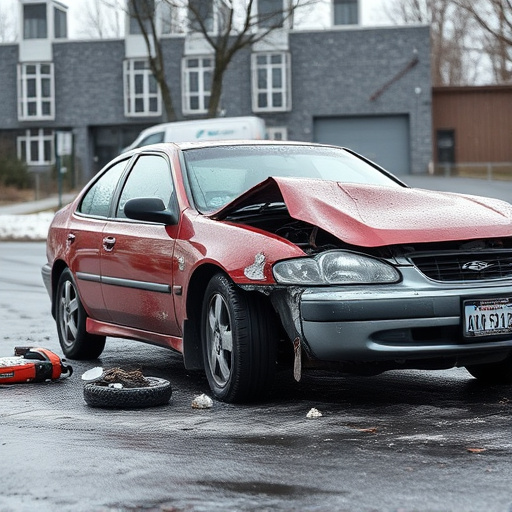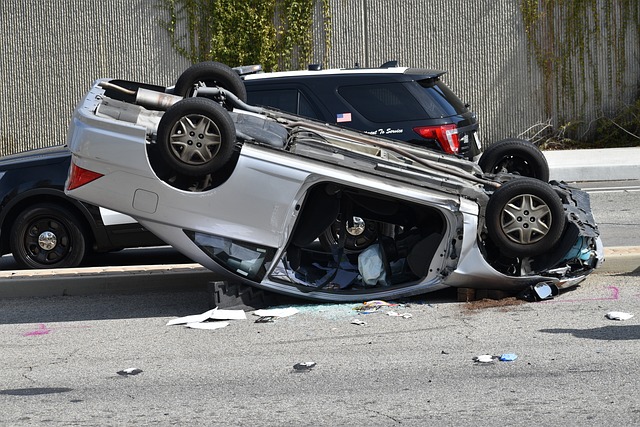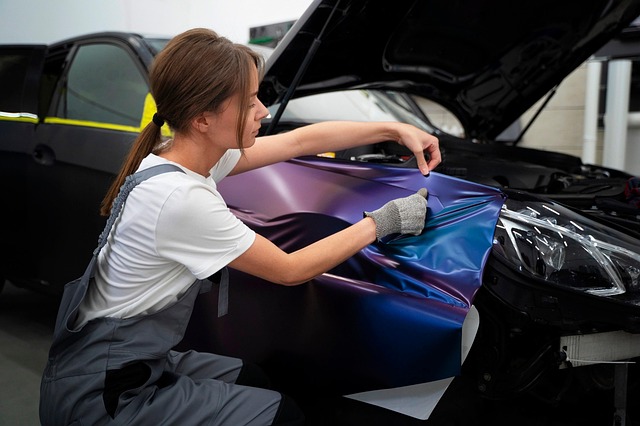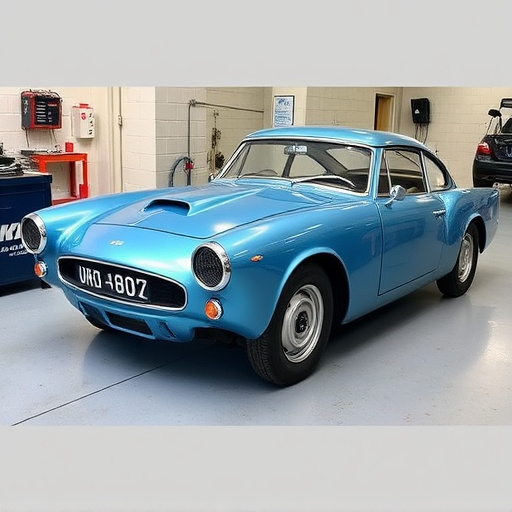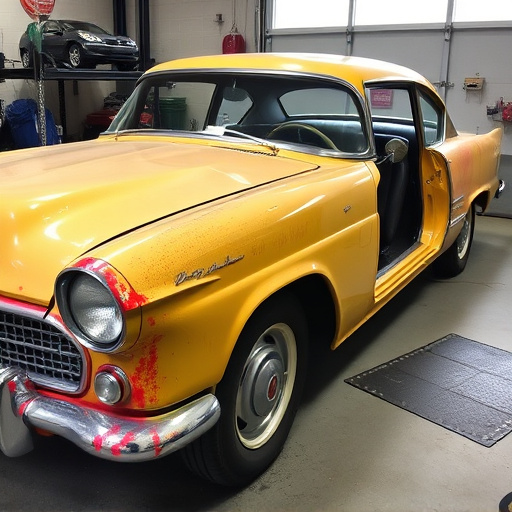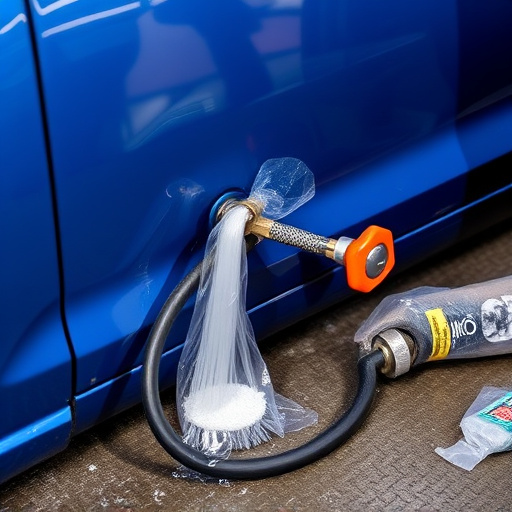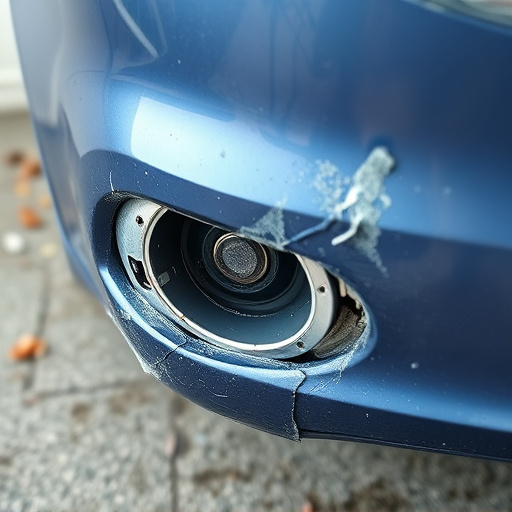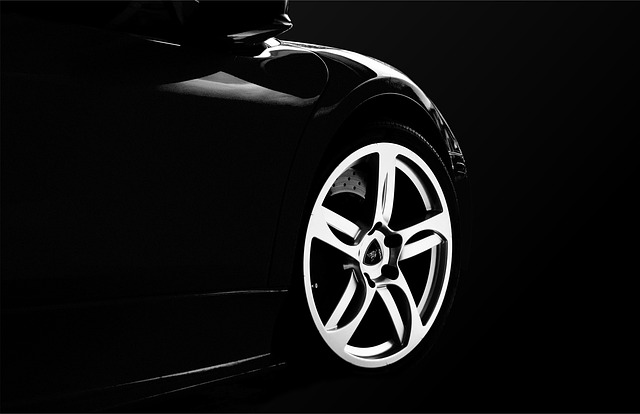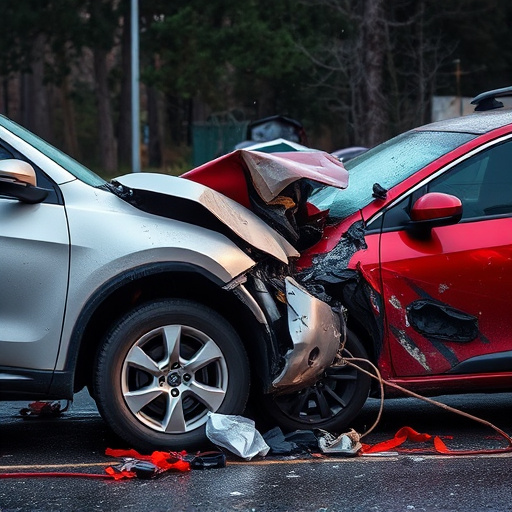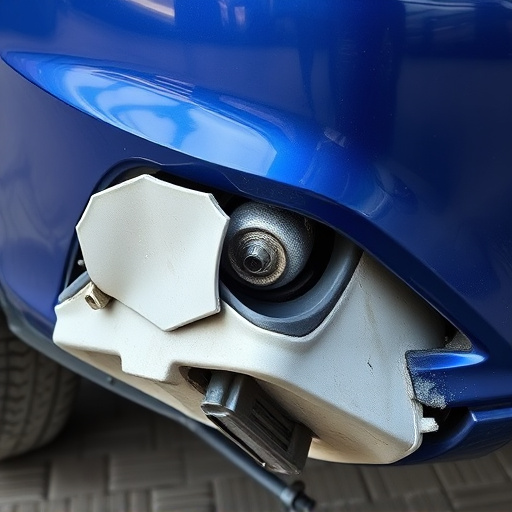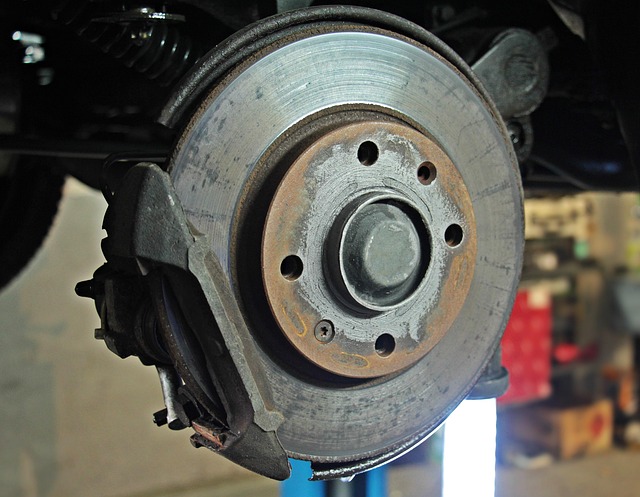The primer surfacer application is an efficient, cost-effective auto repair method for minor dents and scratches, preparing surfaces for painting with a color-matching compound. It's ideal for regular maintenance but may not match factory panel replacements' precision or address rust issues. For severe damage, full panel replacements restore aesthetics, value, and structural integrity, though they're more expensive and complex.
In the realm of automotive repair, choosing between primer surfacer application and full panel replacement is a crucial decision. This article serves as your guide through these two distinct solutions. We’ll first demystify the process of applying primer surfacer—a versatile technique for repairs that requires understanding its basics, benefits, and drawbacks. Subsequently, we’ll explore full panel replacement as an alternative, comparing it against the efficiency and cost-effectiveness of primer surfacer application.
- Understanding Primer Surfacer Application: The Basics
- Advantages and Disadvantages of Using Primer Surfacer
- Full Panel Replacement: An Alternative Solution Compared
Understanding Primer Surfacer Application: The Basics
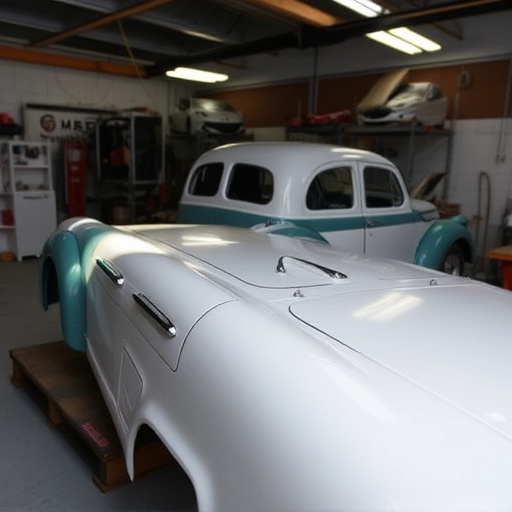
The primer surfacer application is a repair technique that involves filling and smoothing out minor dents, scratches, or damage on automotive surfaces. It’s a cost-effective solution for small repairs, focusing on restoring the affected area to a smooth, even base before painting. This process uses a special compound that matches the color of the vehicle’s paint, allowing it to blend seamlessly with the existing finish.
This method is particularly useful for fixing minor scratch repair or bumper repair needs during regular auto maintenance routines. By applying primer surfacer, you can avoid the cost and time commitment of a full panel replacement. It’s an efficient way to restore your car’s exterior, ensuring a smooth, professional-looking finish without breaking the bank.
Advantages and Disadvantages of Using Primer Surfacer
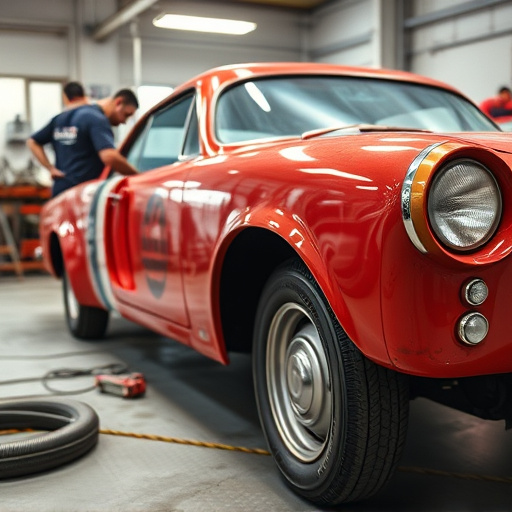
Using a primer surfacer for repairs offers several advantages when compared to full panel replacement. It’s an effective and efficient solution for smaller dents, scratches, and dings, particularly in hard-to-reach areas. Applying a primer surfacer is typically faster and less costly than replacing an entire panel, making it an attractive option for those seeking budget-friendly automotive repair services. This method also preserves the original car paint as much as possible, ensuring that the vehicle retains its authentic look and finish.
However, there are disadvantages to consider. Primer surfacer repairs might not match the precision and aesthetic quality of a full panel replacement, especially with deeper dents or more complex damage. In cases where rust is present, using a primer surfacer could temporarily mask the issue but not fully resolve it. Moreover, for mercedes benz repair or other high-end vehicle brands, where original equipment manufacturer (OEM) standards are paramount, primer surfacer applications may not meet the same stringent quality requirements as a factory panel replacement.
Full Panel Replacement: An Alternative Solution Compared
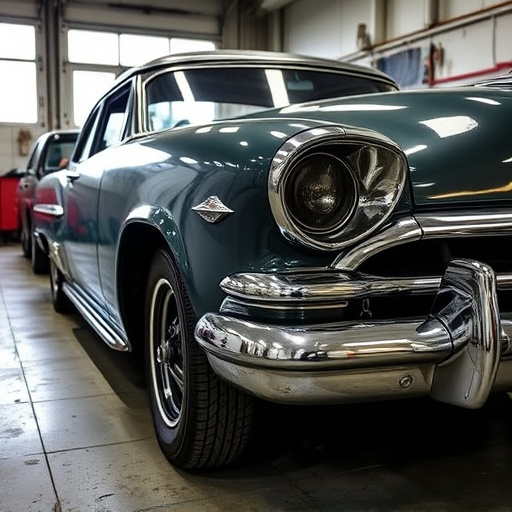
While a primer surfacer application offers a quick and cost-effective solution for minor dents and scratches on car bodywork, there are instances where a full panel replacement is the better alternative. For more extensive damage, such as major accidents or severe corrosion, replacing the entire panel is often necessary. This involves removing the damaged section and installing a new one, ensuring seamless integration with the existing vehicle structure.
Full panel replacements, though more intricate and expensive than primer surfacer applications, offer several advantages. They restore the car’s original aesthetics, enhancing its overall value, especially in the realm of vehicle restoration. Moreover, replacing entire panels can prevent further damage caused by underlying issues like weakened structural integrity, ensuring long-lasting reliability and safety during bumper repair and car bodywork services.
When deciding between a primer surfacer application and full panel replacement, understanding the advantages and disadvantages of each is key. Primer surfacer application offers a cost-effective solution for minor repairs and can extend the life of your vehicle’s paint job. However, it may not be suitable for extensive damage or long-term protection. Full panel replacement, while more expensive, guarantees a seamless finish and replaces the entire damaged area, ensuring better structural integrity. Ultimately, the choice depends on the extent of the damage, your budget, and desired outcomes, with primer surfacer application being ideal for quick touch-ups and full replacements suited for significant repairs.
